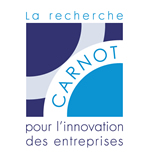Doctegestio aims to both improve data processing and streamline hospital administration processes through the use of semantic analysis
Supporting Innovation
Doctors must carefully read and transcribe all medical data concerning each of the 7.7 million hospital admissions using a strictly codified nomenclature. This stage is indispensable for patient reimbursement and now serves to populate patient’s shared medical records. Doctegestio, a key stakeholder in healthcare and medical welfare, provides assistance to hospital doctors through a reading and coding solution based on semantic analysis of natural language that is sufficiently accurate to speed up the outcome and make it more reliable. The DIM-IA project, focusing on hospital medical data and information management departments, combines anonymised databases with artificial intelligence developed by Carnot CEA LIST. The system aims for optimal processing time and coding quality while complying with regulations, thus freeing up high value added medical resources.
The client needs
Doctegestio was created in 2000 and is a major player in healthcare, medical welfare and social and family tourism in France, with 290 establishments and nearly 10,000 employees. The Group’s development strategy is based around strong external growth and highly digitised data management processes. Doctegestio is currently involved in a number of integrated healthcare AI projects that reflect the Group’s commitment to solidarity and upholding the common good.
Codifying hospital stays requires collation of a vast quantity of data from post-operative reports, hospital admissions and the results of medical tests, etc. In order to ensure complete anonymity, each hospital has an archive of anonymised medical records, based on a unique number without a transcoding table, thus avoiding any identification of patients/visits. The archive is processed using artificial intelligence based on semantic analysis in qualified medical language. Doctegestio and CEA LIST have conducted a major joint research project to automatically codify medical procedures that monopolise a lot of time and resources . The French national health insurer (CNAM) has already expressed interest in the system as a means of populating patient’s shared medical records.
Partnership
Carnot CEA LIST conducts smart digital systems R&D and has developed solid artificial intelligence expertise. After adapting its semantic analysis algorithms to medical terminology, the Institute has linked its semantic platform to hospital databases managed by Doctegestio. The system has achieved remarkable performances. The learning process factors in the wide variety of available sources: free [or] unstructured text that is frequently difficult to process. Starting with this unstructured data, AI extracts the relevant information from patient records and classifies it according to the WHO’s ICD-10 statistical classification of diseases and related health problems. This has demonstrated the ability of CEA LIST teams to automatically process the transcription of medical hospital data. As well as boosting the productivity of the people involved, the system also speeds up the medical billing chain and makes it more secure.
Following the success of the DIM-IA project, which demonstrates the value and reliability of AI in the healthcare arena, CEA LIST and Doctegestio have set up a joint research lab and now have their sights set on projects with a nationwide reach.

